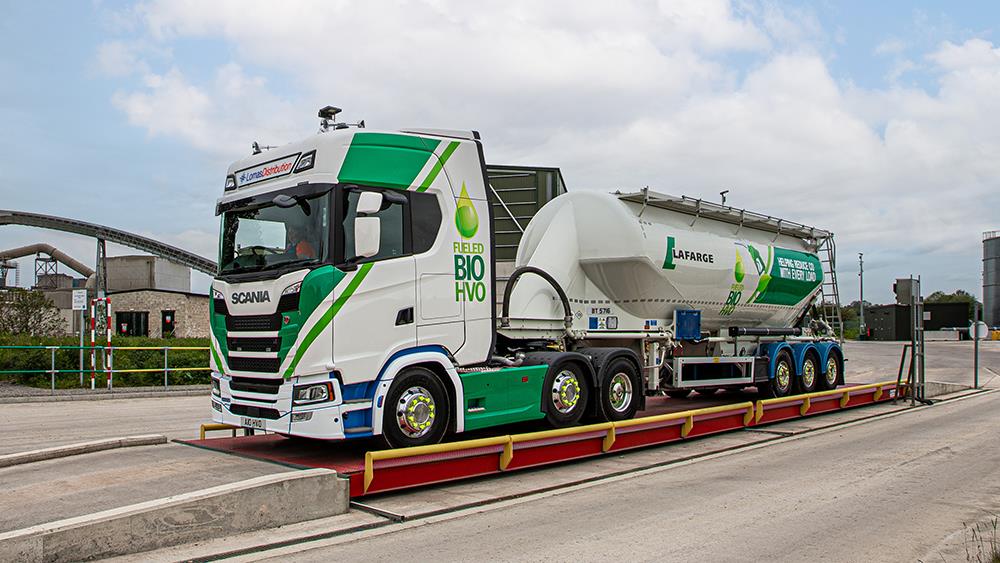

Aggregate Industries has taken delivery of the next generation of cement tanker fuelled by a green bio-fuel in a UK first.
The construction materials supplier, which is headquartered at Coalville in Leicestershire, has deployed the truck under the Lafarge Cement brand, working with logistical partner, Lomas Distribution. The 30-tonne bulk tanker is fuelled by Hydrotreated Vegetable Oil (HVO).
HVO is part of the paraffinic family of fuels and is a fossil-free alternative to mineral diesel, resulting in up to 90% reduction in greenhouse gas emissions. It is made by taking waste cooking and frying oil from the food industry, and hydrotreating it. As well as reducing carbon emissions, it produces less nitrous oxide and particulate matter when used in combustion engines. It also acts as a direct drop-in replacement for diesel with no need for modifications.
The truck joins the fleet of 50 Lafarge Cement vehicles. It will operate out of the Cauldon cement plant in the Staffordshire Moorlands and work across cement operations in the midlands and northwest.
The use of alternative fuels such as HVO is a central pillar in Aggregate Industries’ Journey to Net Zero strategy, which aims to decarbonise the business and achieve net zero before 2050.
Matt Owen, Supply Chain Manager in Aggregate Industries’ Cement division, said: “The benefits of using HVO are there for all to see. Being able to reduce carbon emissions by up to 90 per cent is huge for us, alongside the reduction in things like nitrous oxide.
“Also, HVO is a direct drop in replacement for diesel so easy to switch to. We are trialling the vehicle and will be monitoring and evaluating its performance and its emissions.
“We are already using HVO in our loading shovels at our three cement dockside terminals at Glasgow, Ellesmere and Chatham and are planning to introduce more HVO fuelled vehicles over the year.”
The cement division has also recently taken an electric cement truck on trial.
Luke Olly, Carbon and Energy Manager at Aggregate Industries, said: “This is a fantastic step forward as we look to accelerate our journey to net zero.
“Our aim as a company is to reduce unblended gas oil usage by more than 90 per cent by 2035. HVO offers us one of a number of opportunities to do this. It is circular in nature as it starts out as raw material derived from plants and we are effectively re-using waste after it has been used in the food industry.
“We have plans to increase alternative ways to fuel our vehicles and plant equipment whether that is through HVO, electric or hydrogen and we look forward to rolling these out across the business over the coming years.”